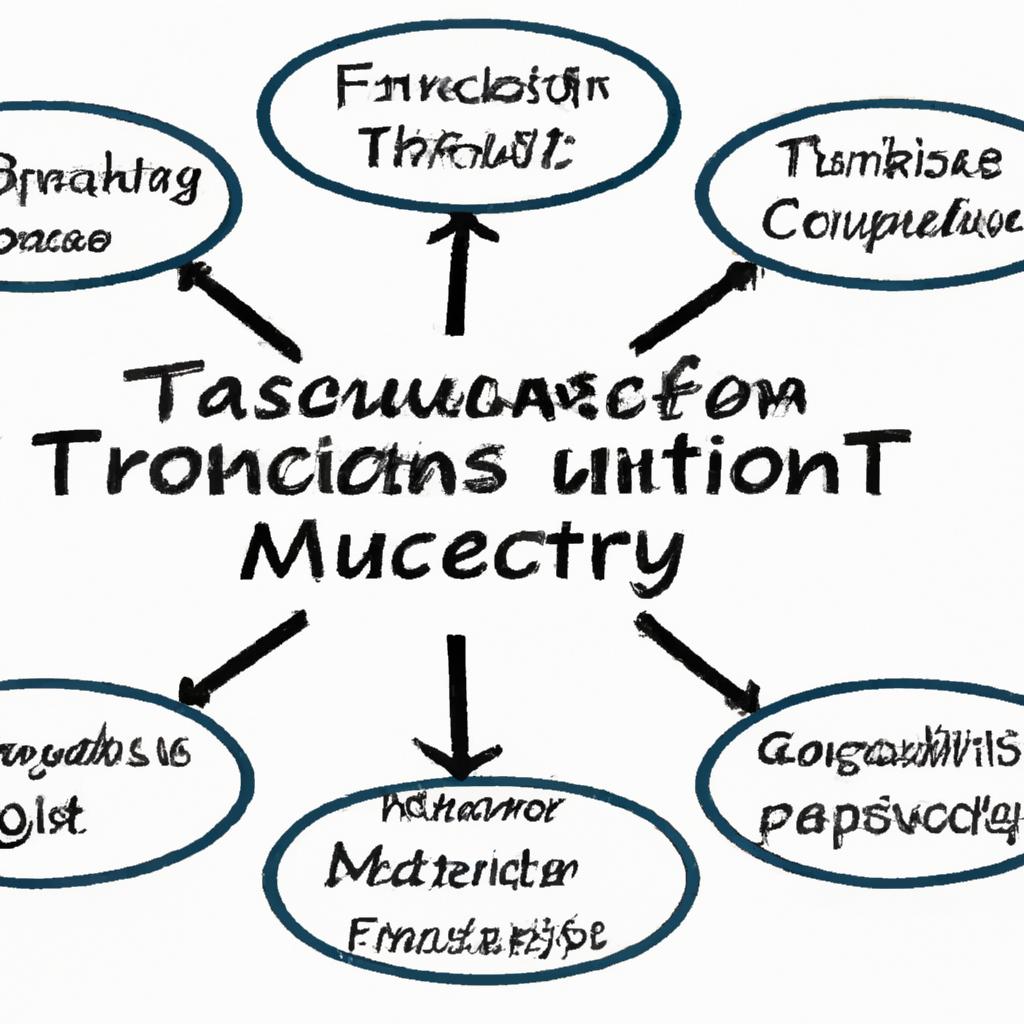In the intricate world of wealth management and estate planning, one crucial aspect often overlooked is the cost associated with managing a trust. Understanding what a bank charges to oversee a trust can be the key to ensuring the efficient preservation and distribution of assets for future generations. As seasoned professionals at Morgan Legal Group in New York City, we delve into the intricate details of trust management fees, shedding light on this critical component of financial planning. Join us as we explore the complexities of trust administration costs with clarity and precision.
Understanding Trust Administration Fees
A bank typically charges a variety of fees to manage a trust on behalf of a client. These fees are not standard across all financial institutions and can vary depending on the size of the trust, the complexity of the assets, and the level of service provided. It is essential for individuals to understand the different types of fees that may be charged by a bank for trust administration:
- Asset Management Fee: This fee is charged based on a percentage of the total assets in the trust and is typically calculated annually. The bank will manage the investment of trust assets to generate income and growth.
- Trustee Fee: The trustee fee is compensation paid to the bank for its administrative services, including record-keeping, tax filings, and distribution of assets to beneficiaries. This fee can be a flat rate or a percentage of the assets in the trust.
- Termination Fee: In some cases, a bank may charge a fee when the trust is terminated. This fee covers the administrative costs of closing out the trust and distributing the remaining assets to beneficiaries.
| Fee Type | Typical Cost |
|---|---|
| Asset Management Fee | $5,000 – $10,000 |
| Trustee Fee | 1% – 2% of the trust assets |
| Termination Fee | $1,000 – $2,000 |

Factors Impacting Trust Management Costs
When it comes to understanding the costs associated with managing a trust at a bank, there are several factors that can impact the overall expenses. One significant factor to consider is the size of the trust fund itself. Larger trust funds typically incur higher management fees due to the increased amount of assets being managed. Additionally, the complexity of the trust arrangement can also impact costs. Trusts with more intricate provisions or requirements may require more time and resources from the bank, leading to higher fees.
Another factor that can impact trust management costs is the investment strategy employed by the bank. Banks may charge different fees based on the level of involvement in managing the trust assets. For example, actively managed investment strategies may result in higher fees compared to passive investment approaches. Additionally, the performance of the trust fund can also play a role in determining management costs. Trusts that perform well and generate higher returns may attract higher management fees as a percentage of assets under management. On the other hand, trusts with lower returns may result in lower management fees.
Comparing Different Banks’ Trust Management Fees
When considering trust management fees, it is important to carefully compare the charges imposed by different banks. Fees can vary significantly depending on the financial institution, the size of the trust, and the services provided. Some banks may charge a flat fee based on the value of the trust, while others may assess a percentage of the assets under management. It is essential to understand the fee structure of each bank to ensure that you are receiving fair and transparent pricing for trust management services.
In addition to comparing fees, it is also crucial to consider the level of service offered by each bank. Some banks may provide comprehensive trust management services, including investment advice, financial planning, and tax preparation, while others may offer more basic services. It is important to choose a bank that meets your specific needs and provides the level of service you require. When selecting a bank to manage your trust, it is essential to carefully review the fee structure and services offered to ensure that you are receiving the best value for your money.
Recommendations for Minimizing Trust Management Expenses
When it comes to managing a trust, minimizing trust management expenses is crucial for maximizing the value of the trust assets. One way to achieve this is by carefully selecting a bank or financial institution to manage the trust. Banks typically charge a fee for their trust management services, which can vary depending on the size of the trust, the complexity of the assets, and the level of service required.
Here are some :
- Compare fees: Before selecting a bank to manage the trust, it is important to compare the fees charged by different institutions. Consider both the initial setup fees and ongoing management fees.
- Negotiate fees: Don’t be afraid to negotiate with the bank to try and lower the trust management fees. Some institutions may be willing to offer discounted rates, especially for larger trusts.
- Consider alternative options: In some cases, it may be more cost-effective to hire a professional trustee or trust company to manage the trust instead of a bank. These alternative options may offer more personalized service at a lower cost.
Q&A
Q: What are the typical fees associated with managing a trust at a bank?
A: Typically, banks charge a variety of fees for managing a trust, including an initial setup fee, annual administrative fees, and potentially additional fees for specific services such as asset management or disbursement of funds.
Q: How are the fees for managing a trust determined by banks?
A: The fees for managing a trust at a bank are usually determined based on factors such as the size of the trust, the complexity of the trust assets, the level of service required, and the institution’s fee structure.
Q: Can the fees for managing a trust at a bank vary depending on the bank?
A: Yes, fees for managing a trust at a bank can vary significantly depending on the institution. Different banks may have different fee structures, so it’s important to shop around and compare costs before selecting a bank to manage your trust.
Q: Are there any ways to potentially reduce the fees for managing a trust at a bank?
A: Some banks may offer fee waivers or discounts for certain clients, based on factors such as the size of the trust or the total assets under management. Additionally, negotiating with the bank or exploring alternative trust management options could potentially help reduce fees.
Q: Are there any other factors to consider when choosing a bank to manage a trust?
A: In addition to fees, it’s important to consider factors such as the bank’s reputation, experience with trust management, level of customer service, and overall trustworthiness before selecting a bank to manage your trust. It’s also a good idea to review and understand the bank’s trust agreement and fee schedule before signing any agreements.
Closing Remarks
In conclusion, understanding the fees associated with managing a trust with a bank is important in ensuring that your assets are being handled effectively and efficiently. By being aware of the charges and costs involved, you can make informed decisions that align with your financial goals and objectives. Remember to consult with a trusted financial advisor or legal professional to help navigate the complexities of trust management and ensure that your wealth is being properly safeguarded. Thank you for reading and we hope you found this information helpful in managing your trust with a bank.


